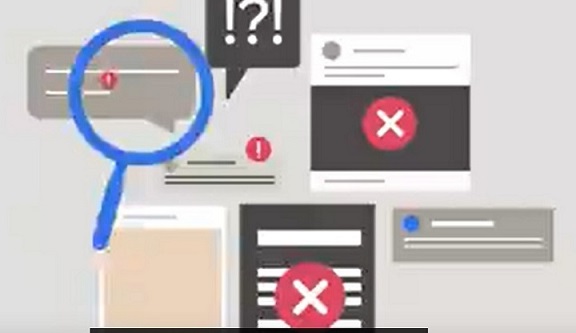
After the initial jolt over the announcement of Meta that it is ending its third-party fact-checking program starting in the United States, we reminded ourselves that VERA Files was VERA Files before we became a third-party fact-checker for Facebook, as Meta was known in 2018.
We were then a 10-year-old organization producing in-depth reports that helped the public understand better issues affecting their daily lives so that their decisions would be based on facts.
Immediately following last Tuesday’s announcement, Meta told us that our 2025 fact-checking agreement remains unchanged.
As we said in a statement we released last Wednesday, we will continue doing our work of informing the public with the truth.
Opportunity to innovate and expand
We recognize the harder challenge with this development and we take this as an opportunity to be more innovative and effective in doing our job of empowering the public with accurate information to meaningfully participate in the governance of the country.
Although alarmed by Meta’s latest moves, scholar and professor Jonathan Ong, executive director of the new Sigla Research Center, sees it as “an opportunity for all of us pro- democracy actors to expand our skillsets and approach the information crisis in holistic and sociological ways, such as incorporating in other hyperlocal and community approaches to bridge polarized public spheres, empower citizens and target industries selling disinformation as a service.”
Ong, author of Architects of Networked Disinformation, the authoritative study on troll accounts and fake news production in the Philippines, said: “Post-2016, many news organizations have become reliant on Big Tech’s ‘philanthrocapitalism’ to augment their revenue streams and expand their portfolio. It’s not just fact-checking partnerships but various grants from Meta and Google have promoted media literacy interventions, independent research, and election monitoring work: but now all these are on the chopping block.”
He shared that based on their research with almost 100 Global South media organizations (GloTechLab.net), many newsrooms and nonprofits have pivoted their original mandates to chase after Big Tech funding.
“In the Philippines, even legal advocacy organizations chased funding to pursue media literacy work during elections. I anticipate that those newsrooms and nonprofits that have pivoted their work to digital literacy and in the process became financially dependent on Big Tech philanthrocapitalism would be most vulnerable by Meta’s new policy. Indeed, Zuckerberg’s announcement signals to the world that they’re done apologizing for social media harms and appeasing legacy media around the world as their global partners. Big Tech perceives Trump 2.0 as a shield against global tech regulation and the US election result as a moral justification that global tech justice is ‘out of touch’ with the current moment.”
Meta throwing fact-checkers under the bus
As worrisome as the financial repercussions are the false claims made by Meta CEO Mark Zuckerberg when he announced he was “getting rid of fact-checkers.” The most obnoxious are equating fact-checking with censorship and accusing fact-checkers of political bias.
“Meta is throwing fact-checkers under the bus in an attempt to make friends with the new administration,” said Thanos Sitistas of Greece Fact Check.
In an open letter to Zuckerberg, the International Fact-Checking Network (IFCN), composed of more than 170 fact-checking organizations worldwide advocating for information integrity in the global fight against disinformation, strongly objected to these falsehoods: “But you say the program has become ‘a tool to censor,’ and that ‘fact-checkers have just been too politically biased and have destroyed more trust than they’ve created, especially in the U.S.’ This is false, and we want to set the record straight, both for today’s context and for the historical record.
“Meta required all fact-checking partners to meet strict nonpartisanship standards through verification by the International Fact-Checking Network. This meant no affiliations with political parties or candidates, no policy advocacy, and an unwavering commitment to objectivity and transparency. Each news organization undergoes rigorous annual verification, including independent assessment and peer review. Far from questioning these standards, Meta has consistently praised their rigor and effectiveness. Just a year ago, Meta extended the program to Threads.
“Your comments suggest fact-checkers were responsible for censorship, even though Meta never gave fact-checkers the ability or the authority to remove content or accounts. People online have often blamed and harassed fact-checkers for Meta’s actions. Your recent comments will no doubt fuel those perceptions. But the reality is that Meta staff decided on how content found to be false by fact-checkers should be downranked or labeled. Several fact-checkers over the years have suggested to Meta how it could improve this labeling to be less intrusive and avoid even the appearance of censorship, but Meta never acted on those suggestions. Additionally, Meta exempted politicians and political candidates from fact-checking as a precautionary measure, even when they spread known falsehoods. Fact-checkers, meanwhile, said that politicians should be fact-checked like anyone else.”
Zuckerberg threatened by Trump
What is happening in Meta underscores the danger truthfulness poses to authoritarian leaders or those with authoritarian tendencies and the risks that people in the business of truth-telling have to put up with.
IFCN took note that Zuckerberg’s announcement “came after President-Elect Donald Trump’s election certification and as part of a broader response from the tech industry to the incoming administration.”
“Mr. Trump himself said your announcement was ‘probably’ in response to threats he’s made against you. Some of the journalists that are part of our fact-checking community have experienced similar threats from governments in the countries where they work, so we understand how hard it is to resist this pressure.”
Many of those journalists referred to by IFCN did not have the enormous resources that Zuckerberg has. With 3.5 billion constituents, almost half of the world’s population, and the third richest man in the world with $217.7 billion net worth, imagine how dynamic democracy would be if Zuckerberg decides to take up the mantle of truth-telling.
This column also appeared in Malaya Business Insight, canadianfilipino.net and VERA Files
Be First to Comment